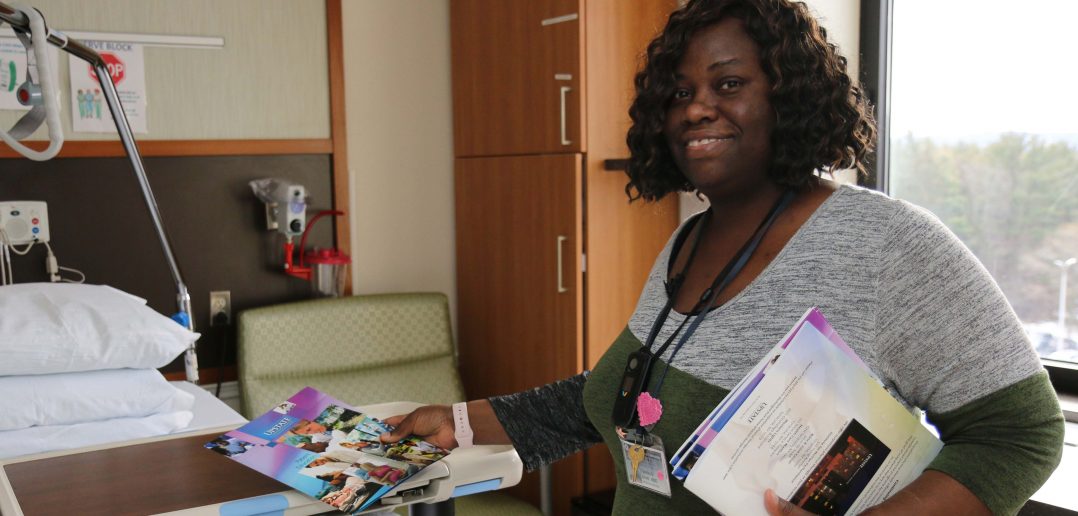SYRACUSE — The flu epidemic that crowded emergency rooms and filled hospital beds across the nation this winter may have been one of the toughest on record.
For workers at Upstate University Hospital’s two campuses in Syracuse, the now winding-down flu season just meant additional challenges to overcome.
Overflow of flu patients
Nursing Station Clerk Tamika Scott, who works in the orthopedic recovery unit at Upstate’s Community Campus, saw flu patients overflowing onto her floor, which usually only houses post-operative patients.
“Usually we only have orthopedic and bariatric surgery patients, but since the flu epidemic, we’ve taken on medical patients as well, mostly with the flu,” she said. “It’s been a daily onslaught.”
At its worst, Scott said their patient census was the highest she had ever seen in the 15 years she has worked there.
“It puts a lot of stress on the staff,” she said. “You have to work a lot harder to take care of that high census of patients. There’s a lot of teamwork on our floor, so we just work together to get through the day.”
Sometimes, that meant working 12-hour days “just to accommodate those extra patients.”
Scott noted that the heavier volume never affected patient care. “We have great patient care on our floor, nothing has changed with that,” she said. “It’s just a little busier.”
Fighting the flu is a hospital-wide effort that does not fall exclusively on the Emergency Department and direct care workers. In fact, the efforts take a team of people —including people employed by the hospital’s environmental services, pharmacy services, infection control, nursing, respiratory care, employee and student health and more.

Health Care Technician Caitlin Ruane works in the busy adult Emergency Department at the downtown campus of Upstate University Hospital.
Caring for patients while keeping healthy
For Health Care Technician Caitlin Ruane, who works in the Adult Emergency Department at Upstate’s downtown campus, fighting the flu meant sometimes dealing with a very full Emergency Department.
“There have been times where it’s been very busy, and you just try to prioritize so you don’t let yourself get overwhelmed,” Ruane said. “We’re well prepared. We get a great education on this stuff, so we’re ready to handle it. We just go onto autopilot and do what we have to do.”
Ruane added that she also faces a challenge in keeping healthy herself when surrounded by illness. Most of Upstate’s workers have had flu shots as a preventative measure, but Ruane said many hospital staff take extra precautions.
“We’re just more conscious of hygiene, keeping up with my hand-washing and wearing my mask when someone suspected with the flu comes in,” she said.
Scott ensures she keeps her work area sanitized.
“Since I started here, I wipe my desk, my phone and my chair,” she said. “Throughout the day, I’m constantly washing my hands and I keep hand sanitizer at my desk.”
Dealing with increased numbers of patients also means helping manage people who get upset from having to wait to be seen.
Ruane said they try to offer extra compassionate care to counter that frustration.
“You have to put yourself in their shoes and think about how you feel when you’re not feeling good, and you can understand their frustration,” Ruane said. “You just need to be understanding, listen to them, and just talk with them. I tell them we’re here now, we’re going to do our best to make you feel better, and try to cheer them up a little bit.”
And that might be the best treatment any of the workers can offer.
— Mark M. Kotzin



